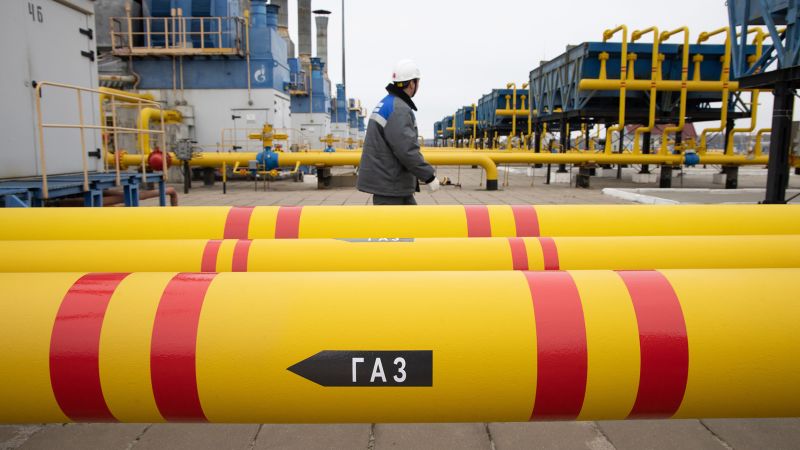Turn down the heat to stop Putin? Europe wrestles with its Russian gas addiction

Russia has been building Those sanctions are battering the Russian economy, but they haven’t yet targeted fossil fuel exports directly, so concerned are Western governments about soaring energy prices and the cost of living. Ultimately, they want Russian gas, at least, to keep flowing.Oil is another story. While the price of benchmark Brent crude soared this week, trading at around $115 a barrel on Friday, Russia’s flagship Urals crude was offered at a discount of $18 a barrel, a sign that some buyers are shunning it.Banks and traders fear getting caught up in financial sanctions, and shipping companies and insurers are worried about the risk to tankers in the Black Sea. Besides, Europe can buy oil from elsewhere. Replacing Russia natural gas is more difficult.Turning the heat down can save huge amounts of gasProponents of climate action have for years pushed for a plan to wean the world off natural gas, which is a potent planet-warming fossil fuel. It has taken an energy crisis and bloodshed in Ukraine to finally kick EU institutions into gear. EU energy chief Kadri Simson said Thursday that the bloc will release its plan next week for reducing its reliance on Russian gas, and for speeding up the adoption of more renewable energy.”Beyond the short term, ultimately … the only lasting solution is the Green Deal, boosting renewables and energy efficiency as fast as technically possible. So we are still far too dependent on fossil fuel imports,” she said at a press conference with the International Energy Agency. Germany, which had aimed to transition to 100% renewables by 2040, has already brought its target forward by five years, since Russia invaded Ukraine last week.The Ukraine crisis has also injected new urgency into conversations about whether the world can go on using as much energy as it does. Europe should be able to replace some of Russia’s gas supply, but cutting it out altogether simply isn’t an option for this heating season, “But who knows? It’s an unprecedented situation. I could imagine a kind of political campaign, a real push by European leaders saying, look, if you can help us by turning down 1 degree on your thermostat, it’s going to help. And you can see people uniting behind this, against Russian gas,” he told CNN. “But ultimately, you’ll need much more than this in response.”One approach would be to replace around half the gas from other sources, McWilliams said. The United States is already shipping Iiquefied natural gas (LNG) to Europe, and EU officials are also looking to countries like Azerbaijan and Qatar. The other half will need to come from cutting demand, McWilliams said, especially as Europe prepares for next winter.Heavy industries, like steelmaking and chemical production, will need to reduce their operations. Homeowners investing in solar panels and heat pumps could help take some pressure off heating systems.Tara Connolly, a campaigner with the international NGO Global Witness who specializes in gas, says that Europe must launch an emergency program to insulate homes, replace gas boilers with heat pumps and accelerate the transition to renewable energy.”It is abundantly clear that Europe’s gas dependence has provided Putin with the resources to engage in his bloody venture in Ukraine, whilst hampering Europe’s response,” she said. “This moment has shown that not only are fossil fuels wrecking the climate, they are contributing to a more volatile and dangerous world.”CNN’s Charles Riley and Julia Horowitz contributed to this report.







